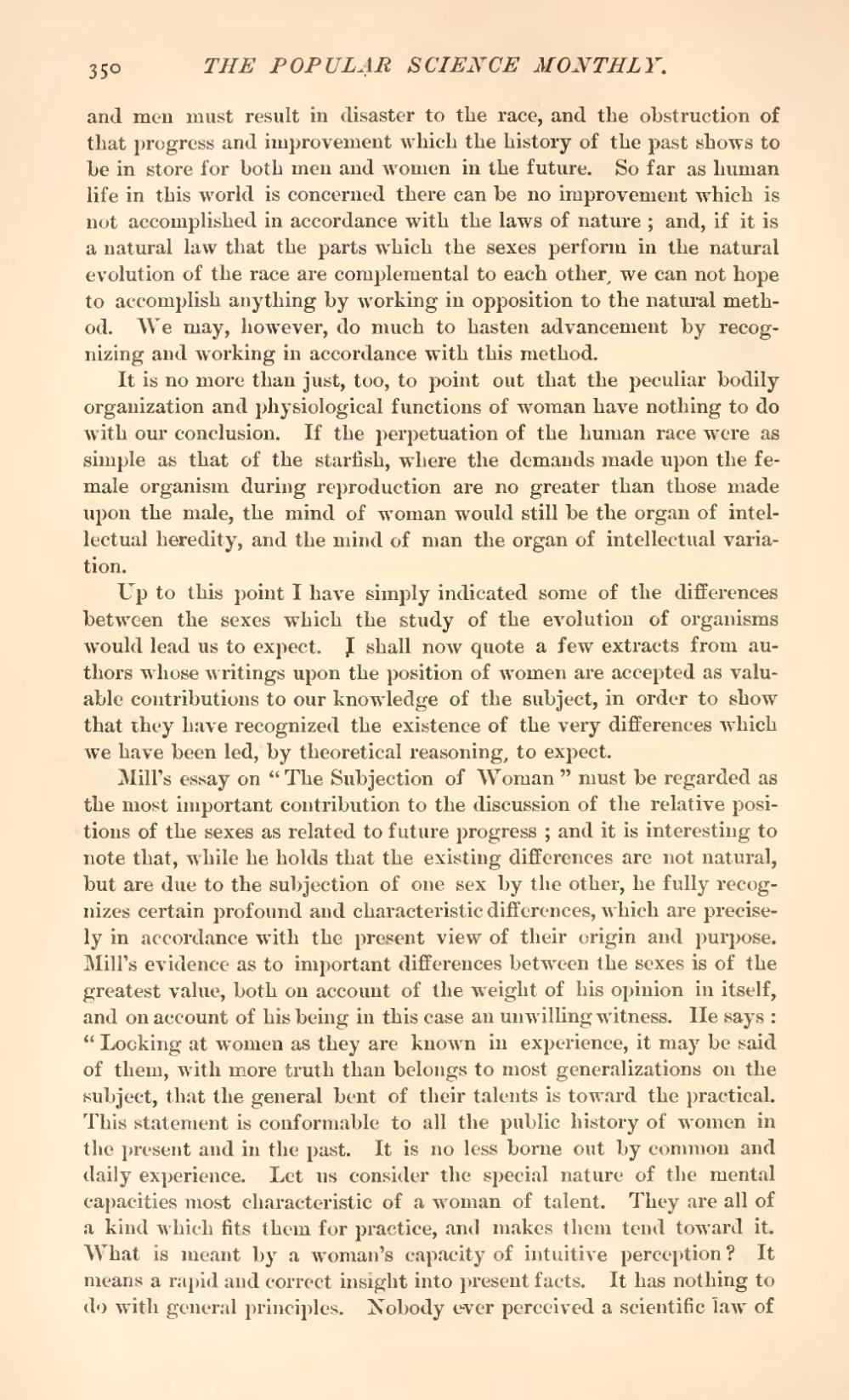and men must result in disaster to the race, and the obstruction of that progress and improvement which the history of the past shows to be in store for both men and women in the future. So far as human life in this world is concerned there can be no improvement which is not accomplished in accordance with the laws of nature; and, if it is a natural law that the parts which the sexes perform in the natural evolution of the race are complemental to each other, we can not hope to accomplish anything by working in opposition to the natural method. We may, however, do much to hasten advancement by recognizing and working in accordance with this method.
It is no more than just, too, to point out that the peculiar bodily organization and physiological functions of woman have nothing to do with our conclusion. If the perpetuation of the human race were as simple as that of the starfish, where the demands made upon the female organism during reproduction are no greater than those made upon the male, the mind of woman would still be the organ of intellectual heredity, and the mind of man the organ of intellectual variation.
Up to this point I have simply indicated some of the differences between the sexes which the study of the evolution of organisms would lead us to expect. I shall now quote a few extracts from authors whose writings upon the position of women are accepted as valuable contributions to our knowledge of the subject, in order to show that they have recognized the existence of the very differences which we have been led, by theoretical reasoning, to expect.
Mill's essay on "The Subjection of Woman" must be regarded as the most important contribution to the discussion of the relative positions of the sexes as related to future progress; and it is interesting to note that, while he holds that the existing differences are not natural, but are due to the subjection of one sex by the other, he fully recognizes certain profound and characteristic differences, which are precisely in accordance with the present view of their origin and purpose. Mill's evidence as to important differences between the sexes is of the greatest value, both on account of the weight of his opinion in itself, and on account of his being in this case an unwilling witness. He says: "Looking at women as they are known in experience, it may be said of them, with more truth than belongs to most generalizations on the subject, that the general bent of their talents is toward the practical. This statement is conformable to all the public history of women in the present and in the past. It is no less borne out by common and daily experience. Let us consider the special nature of the mental capacities most characteristic of a woman of talent. They are all of a kind which fits them for practice, and makes them tend toward it. What is meant by a woman's capacity of intuitive perception? It means a rapid and correct insight into present facts. It has nothing to do with general principles. Nobody ever perceived a scientific law of
